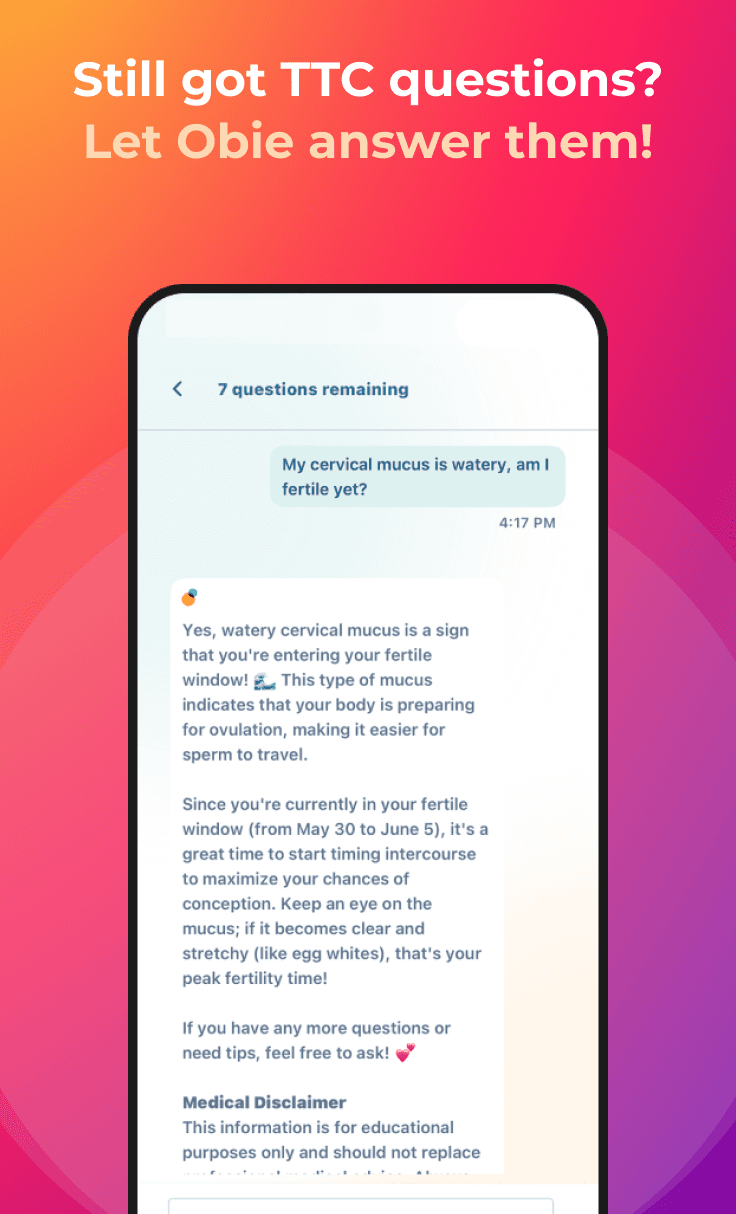Questions About Your Chances of Getting Pregnant
Conception
Obie Editorial Team

When women are trying to conceive, they often have questions regarding their chances of getting pregnant. There are several factors that come into play and some of the more common factors include regularity of menstrual cycle, maternal age and previous history of pregnancies and live births.
Regularity of menstrual cycle
The chances of getting pregnant with a regular menstrual cycle history are far greater than it is in cases of an irregular menstrual cycle. The menstrual cycle determines the regularity of ovulation. Ovulation is the time when the female body is primed for conception. If a regular menstrual cycle is not occurring, the chances of getting pregnant are lessened. This may not be due to a lack of fertility, rather a simple lack of knowing when the body is most apt to be primed for fertilization. During ovulation, hormones increase the chances of getting pregnant because they regulate the acidity of the vagina and prepare cervical mucus to transport the sperm to the awaiting mature egg. Progesterone thickens the uterine walls for implantation. While pregnancy can occur when a woman is not ovulating, the chances are far less likely.
Maternal age
Women are born with a set number of eggs. With age, the number of eggs available for maturation is less than they were at age 20. The ages of the eggs are also older, so there may be an increased risk of genetic disorders and chromosomal disorders with age. Women nearing menopause will likely be releasing the last of the eggs which may not be ideal for fertilization, thus decreasing chances of getting pregnant.
Previous pregnancy health history
If a woman has a previous pregnancy health history of miscarriage or infertility, her chances of getting pregnant are less than they would be in a woman who has conceived easily and carried the fetus to term. With each miscarriage or ectopic pregnancy, women have fewer chances of getting pregnant. There are treatments for these conditions, in some cases. Miscarriages, for instance, may be due to a lower than normal progesterone level in the body after fertilization. Supplemental progesterone could be used to treat this problem and help increase the chances of getting pregnant.
The chances of getting pregnant are unique to each woman. Eating a healthy diet, exercising regularly and having a yearly pap smear are all preventative measures that can increase the chances of getting pregnant. Women who have trouble getting pregnant for more than six months should talk with their obstetrician about possible fertility treatments.









